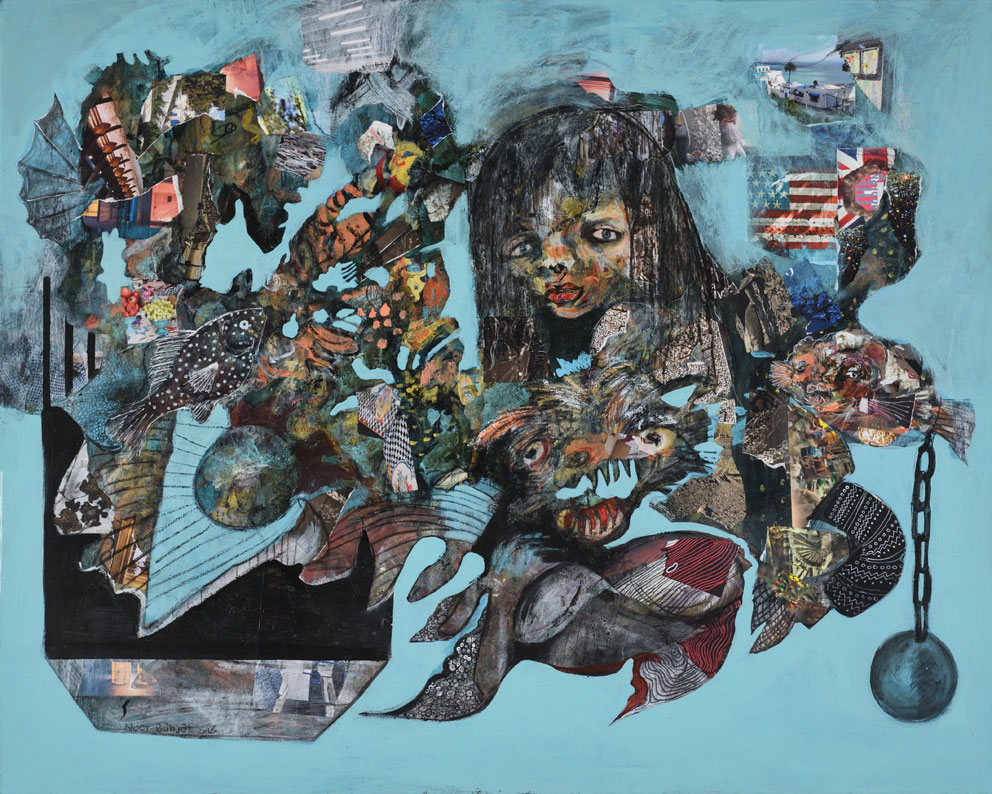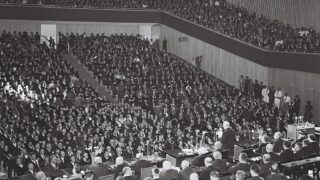
This publication has benefited from the support of the Rosa Luxemburg Foundation. This text may be reproduced in part or in full, provided the source is acknowledged.
Gazan women defy crises in various ways, inventing creative methods to remain resilient, to find spaces of social solidarity and strength. In light of the threat of colonial violence, Palestinian women in Gaza, like the rest of the population, become victims of murder through raids, sieges, house demolitions and property destruction, as well as the target of basic human rights violations, such as deprivation of education, housing, work and the freedom of movement; all of which add to the social, economic, and mental burdens they bear.
Gazan women struggle with exclusion from early on in their lives. For example, when it is time to enroll in higher education, women are nudged towards the fields of study that are “appropriate” to their predetermined social role, such as areas related to “caregiving”, which are “socially acceptable”. Despite that, and in light of this societal control, Hanan Abu Qassem and a group of women have sought to penetrate these spaces – and even go beyond them - through their initiative “A Paramedic in Every Home”.
Hanan was born in Saudi Arabia and returned to Gaza at the age of 16, where she first studied English and worked in translation and teaching, which are fields of work practiced by more than 70 percent of working women in the West Bank and Gaza. However, Hanan later joined the Applied Future Polytechnic College in Gaza and obtained a diploma in first aid and medical emergency as a licensed paramedic. She is one of the founders of the women's emergency medical services team in the Palestinian Red Crescent.
Female paramedics in stadiums
For Hanan and her colleague Manal Msalla, the greatest challenge was penetrating the societal control of women's workspaces, such as breaking through men’s monopoly over stadiums as spaces which are socially ascribed to males. The two young women, who had served as paramedics in three previous wars on the Gaza strip, were able to work as a stadium medical emergency team. Nothing prevented them from performing this task, as there are no laws that prohibit women from working in or entering stadiums. “Women are completely absent from the stadiums, and even in the supporters’ stands, there are no women. In our emergency aid work at the stadiums, we were accepted by some, while many others responded to us with disdain and criticism, despite our commitment to the Islamic attire.”
The hegemony of power and the religious text
The two young women also faced opposition from the government in Gaza, which prompted them to research Islamic history and heritage about the stories of the Prophet (Sirah) and his Companions in order to defend their human right through historical-religious texts that supported their position. “We cited several stories of female companions who used to set up tents on the battlefields, such as Khawla bint al-Azwar... Thus, we were able to avoid clashing with the authorities. With time, our social circles came to accept our presence in the sports fields and stadiums as women paramedics, and our team grew to five women volunteers.”
Marginalized areas as the starting point
The young women put forward the project titled “A Paramedic in Every Home”, which started from the areas located along the border line from Rafah to Beit Hanoun. These are areas that are usually difficult to reach due to their security classification and for several other logistical reasons. The consecutive “Marches of Return” were a major motivation for launching the “initiative” on the borders. “The initiative began to work in the areas bordering the occupied Palestinian territories since it is difficult for ambulances to reach these areas, especially in times of war. The time it takes to call an ambulance and make the necessary coordination (with government bodies in Gaza) to save the patient’s life is too long, and the persons in need for medical attention often lose their chances of survival.”
Social solidarity
The “initiative” made an open call to all groups in these area, making its grass-roots volunteer model public. This led to encouraging social solidarity, which created a sense of safety, albeit a relative one. “We started training people from various social groups at the border area. There, we designated specific houses that we chose, but we were not only training the people who lived in those houses, but the people of the area in general. We put a bright phosphorescent sign on the houses to identify the ones that had an emergency kit inside. The aim of the training was for everyone to understand that they were capable of providing first aid with household items, such as clean cloths, gauze and water, and by immobilizing the injuries or tying off a bleeding wound until an ambulance arrives.”
This “initiative” is trying to find other ways with which it can provide treatment beyond that for injuries caused by the aggressions of the occupation, such as taking care of people's daily ailments, from cases of infant asphyxiation to typical burns and wounds. This approach shows a humanitarian perspective that transcends war and political priorities that impose certain limits on people and their practices, making a distinction between what is deemed an “urgent” and a “non-urgent” injury. There is power in this act, which faces human fragility and cares about regular human pain, thus establishing a free, just and legitimate political practice: “We had to start this initiative and continue it, because there is another life in Gaza besides the bleeding wounds that constitute most cases inside the Strip, naturally, due to the successive wars. We expanded the scope of our work to the central sector and Deir al-Balah, where we chose the houses that are located away from the streets that the ambulances can usually reach, such as those that are in the middle of a narrow neighborhood. We then invited the women to attend the training session. We follow the following strategy: We would not tell the women about the emergency kit. Rather, we train them using the available items they have at home. Then, at the end of the training, after the women have mastered those tools, we place the kit in a specific house, and everyone is informed that in cases of extreme necessity, they can have access to it.”
“We chose specific houses, but we were not only training the people who lived in those houses, but the people of the area in general. We put a bright phosphorescent sign on the houses to identify the ones that had an emergency kit inside. The aim of the training was for everyone to understand that they were capable of providing first aid with household items, such as clean cloths, gauze and water, and by immobilizing the injuries or tying off a bleeding wound until an ambulance arrives.”
This “initiative” is trying to find other ways with which it can provide treatment beyond that for injuries caused by the aggressions of the occupation forces, such as taking care of people's daily ailments, from cases of infant asphyxiation to typical burns and wounds. This approach shows a humanitarian perspective that transcends war and political priorities which impose certain limits on people by making a distinction between what is deemed an “urgent” and a “non-urgent” injury.
The initiative has amassed 500 volunteers, 70 percent of whom are women, most of whom are housewives from marginalized places. It is open to all: “When we invited women to take the workshops, we were surprised to see that men would accompany them. They also wanted to attend and learn these skills. Several men came in with their wives and encouraged them to learn.”
Refusing tied funding
Faced with the question of funding, the initiative sought to reject all tied funds, thus denouncing dependence on the Western donor who aspires to “empower” women in the economic and social domains, while ignoring “empowering” women in a political way; that is, without allowing women to assume active roles in resisting the occupation. “A Paramedic in Every Home” is, in fact, a project that creates a space for public resistance, and opens up an active space for women to bridge the gap between the social and political roles. “Our biggest challenge was providing the first aid kits for the houses, especially those in the border areas which see a lot of clashes, tension, and direct attacks, and where the kits continuously need to be refilled to their frequent usage. We heard about the “Rawa Fund” and the support it provides, and we applied, among other initiatives. Luckily, we were granted the funding and were able to provide the needed kits.”
Marginalized women
“A Paramedic in Every Home” was able to reach the social groups who faced daily, economic and social obstacles which hindered their lives and their involvement in any public or social roles. Women volunteers in the project play an active role in carrying the burden of the collapse of the health system, thus redefining that which is “political” and effectively portraying what it means to be politically involved in relation to people's needs, especially for marginalized women, as the power of solidarity and collective support crystallizes to a force that allows them to protect themselves and support their community. “The goal was to contact the women in marginalized areas; those who are not easily reached, and who do not have enough money to ride public transportation to join the workshops that are held in places far from their areas of residence. We wanted to get inside their homes, to be close to the women in their usual environment and their lifestyle, and to enable them to make use of the tools they already had available within their reach, not just for first aid, but also to learn how to put out a fire or prevent gas leakage, for example. We are talking about breaking barriers and encouraging women to take the initiative, and this in itself is a revolution… We are always very welcome among the communities which gives us all a feeling of empowerment.”
The data and unemployment rate among Gazan women, which exceed 68 percent, do not reflect the role played by volunteer women in the “initiative”. The women make huge unpaid efforts and perform voluntary “duties” to meet the needs of the health sector: “We were surprised that the women who would receive us would always invite all the women they knew, who were all equally filled with a desire to learn. For example, when we expected 10 women in the training session, we would find 40 to 50 women instead.”
Women volunteers in the project play an active role in carrying the burden of the collapse of the health system, thus redefining that which is “political” and effectively portraying what it means to be politically involved in people's needs, especially for marginalized women, as the power of solidarity and collective support crystallizes into a force that allows them to protect themselves and support their community.
The project aimed for breaking stereotypes about women's “weakness and helplessness”. Hence, it was not sufficient for them to teach the learning materials provided by the workshops all over Gaza. Rather, the “initiative” calls on the community to break free from the common “traditions”, including gender segregation: “During the training, we provided assistance to both men and women equally, and the community began to get used to it.”
The journey of healing from trauma
This project promotes hope, breaks down barriers of fear, stands against the social intimidation of women, giving them power instead, and rebuilding what the war breaks in the hearts of people. Women engage in political and humanitarian work that opens the doors of healing and recovery from trauma, aiding them as they climb out of distress and helplessness: “This initiative covers the length and breadth of the Gaza strip. One of the most difficult encounters during our sessions was during the 2019 training. It was the story of a woman who had lost her entire family during the war; she was the only survivor. When she joined the workshop, telling her story and acquiring the necessary tools to save others had helped her in the process of healing from her trauma.”
On the other hand, “there are extraordinary women and girls who continuously challenge society’s patriarchy, as the latter sometimes pops its head up during our training sessions, trying to spread its toxicity. The women have been more than capable of confronting it with an argument as simple as: we are learning to save lives, and in times of need you will find us by your side to help you.”
The content of this publication is the sole responsibility of Assafir Al-Arabi and Rosa Luxemburg Foundation cannot accept any liability for it.
Translated from Arabic by Sabah Jalloul
Published in Assafir Al-Arabi on 23/01/2022




